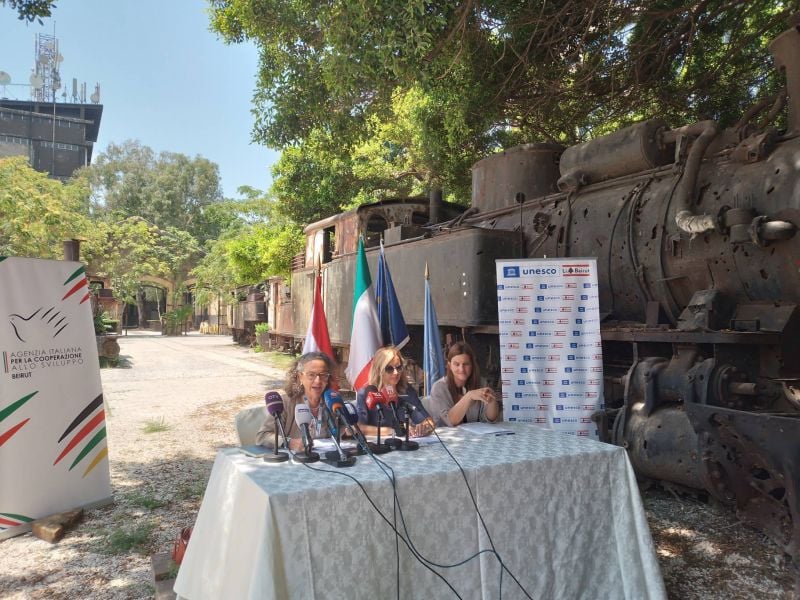As part of its LiBeirut initiative, UNESCO has signed an agreement with the Italian authorities to finance restoration and rehabilitation work to be carried out at Beirut’s Mar Mikhaël railway station.
 The project will cost EUR 2 million. The station, which dates back to 1894 and was abandoned during the civil war, was seriously damaged by the explosions in the Port of Beirut on 4 August 2020.
The project will cost EUR 2 million. The station, which dates back to 1894 and was abandoned during the civil war, was seriously damaged by the explosions in the Port of Beirut on 4 August 2020.
The announcement was made on the spot, during a signing ceremony organised by UNESCO, the Italian Embassy and the Italian Agency for Cooperation and Development (AICS), the head of the Railways and Public Transport Authority Ziad Nasr and the UN-Habitat Country Programme Coordinator in Lebanon, Taina Christiansen. The project is part of a global intervention funded by Italy to preserve the industrial heritage of this former railway station with the aim of reopening it to the public. The first component of Italy’s financial intervention will be implemented by UN-Habitat and aims to create a public green space in the railway station district for the benefit of the inhabitants of Beirut.
The second component will allow UNESCO to preserve the original function of the building, but also its cultural and architectural value, creating a platform for social connection, cultural experience and artistic creativity. The objective is to foster social and cultural interactions between the inhabitants of Lebanon’s capital.
Mar Mikhaël station in Beirut, a project to protect cultural heritage
“After the restoration of the Sursock Museum, the rehabilitation of the Mar Mikhaël railway station is a new step towards healing the socio-economic fabric of Beirut, damaged by the explosions in the Port of Beirut. Protecting and promoting cultural heritage can be a driving force for sustainable development, strengthening a nation’s identity,” said Italy’s Ambassador to Beirut, Nicoletta Bombardiere.
“With the LiBeirut initiative, UNESCU places heritage at the heart of international efforts to safeguard cultural heritage. As a space open to the public, the project will foster social and cultural participation for all, with a special focus on the most vulnerable in this period of serious socio-economic hardship in the country,” said Costanza Farina, Director of UNESCO’s Multisectoral Regional Office in Beirut.
Share on:



